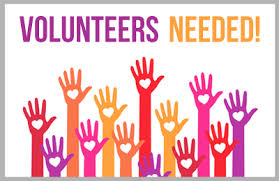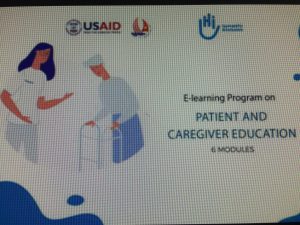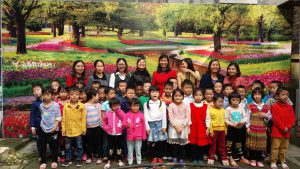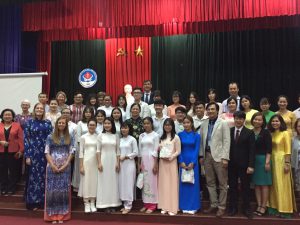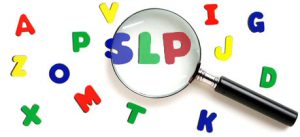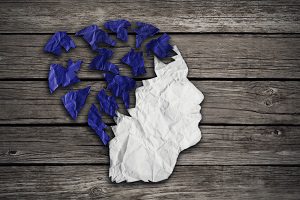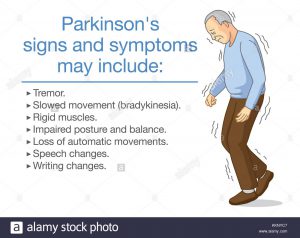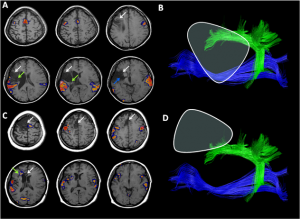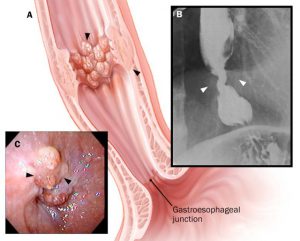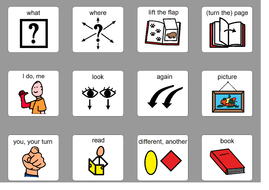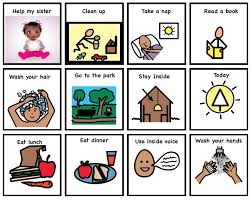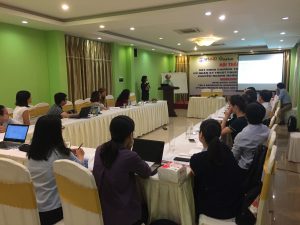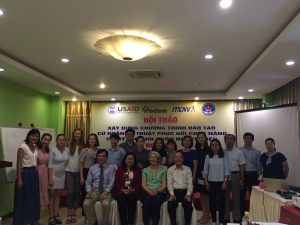News
MCNV is looking for an international Occupational Therapy Volunteer
Medical Committee Netherlands – Vietnam (MCNV) is a Netherland-based NGO founded in 1968 based on friendship and solidarity of Vietnamese and Dutch. Since then, all activities of MCNV are forwarding to the support to develop the programs, projects and the emergency aid in health care of the Vietnamese. During last 20 years MCNV has been supporting People with Disabilities focusing on Rehabilitation Service and Inclusion. To contribute to filling the gaps of rehabilitation services and system at both provincial and district levels, MCNV has been implementing the I-Thrive Project in Thua Thien Hue and Quang Nam Provinces. Within this project, MCNV supports Hue University of Medicine and Pharmacy (UMP) to provide a 12-month course on Occupational Therapy (OT). MCNV is looking for a volunteer to provide coaching on OT clinical practice for health staff (called OT practitioners hereafter)...Đọc Thêm
Read moreRelease an E-learning course for Rehabilitation service providers on Patient and Caregiver Education
Humanity & Inclusion Vietnam releases its e-learning program on Patient and Caregiver Education aiming at improving current practices related to patient discharge and transition of care from hospital to the patient’s home. The overall objective is to improve current practices related to patient discharge and transition of care from hospital to the patient’s home. At the end of the training, participants will be able to effectively train and educate patients and their care-takers or family members so that care follow-up can take place at home following patient discharge from hospital. Targets of the training are Rehabilitation service providers, including but not limited to: physio/occupational/speech therapists, nurses and doctors. The training is structured with 6 modules. In order to be able take the course according to their professional settings, participants have the possibility...Đọc Thêm
Read moreMCNV promotes the International Day of Persons with Disabilities, December 3rd.
The International Day of Persons with Disabilities, December 3rd, was innitiated by the World Programme of Action Concerning Disabled Persons and adopted by the United Nations General Assembly in 1992. This day aims to promote an understanding of disability issues and mobilize support for the dignity, rights and well-being of persons with dsiabilities. It also seeks to increase awareness of governments, organizations and individuals all spheres of society on the integration of persons with disabilities in every aspect of political, social, economic and cultural life. One focus of the International Day of Persons with Disabilities (IDPD) every year is to advocate for the enactment of the national and international laws and standards related to persons with disabilities and the rights of persons with disabilities to participate equally in all aspects of society development. Each year, the UN...Đọc Thêm
Read moreOpening ceremony of the Bachelor of Rehabilitation Techniques with Specialization in Speech and Language Therapy in Đà Nẵng University of Medical Technology and Pharmacy
On the 26th, September 2019, the Opening ceremony of the Bachelor of Rehabilitation Techniques with Specialization in Speech and Language Therapy was organized in Đà Nẵng University of Medical Technology and Pharmacy. This is the first pilot bachelor training program in speech and language therepy in VietNam, which is a component in the project “Speech and Language Therapy Education Development in VietNam” by MCNV with funds from USAID through the DISTINCT project by VietHealth for the period of 2017 – 2022. The ceremony is recognized as a remarkable moment to mark the outcome of a long process with great efforts of many stakeholders, a proof of success of a multi-stakeholder cooperation between international and local non-governmental and governmental organizations, who jointly work towards piloting and establishing a formal Bachelor training program in speech and language therapy...Đọc Thêm
Read moreSpeech-Language Therapy (for parents)
Reviewed by: Brooke Crenshaw, MS, CCC-SLP In a recent parent-teacher conference, maybe the teacher expressed concern that your child could have a problem with certain speech or language skills. Or perhaps while talking to your child, you noticed an occasional stutter. Could your child have a problem? And if so, what should you do? It’s wise to intervene quickly. An evaluation by a certified speech-language pathologist can help find out if your child is having problems. Speech-language therapy is the treatment for most kids with speech and/or language disorders. Speech Disorders, Language Disorders, and Feeding Disorders A speech disorder refers to a problem with the actual production of sounds. A language disorder refers to a problem understanding or putting words together to communicate ideas. Speech disorders include: Articulation disorders:difficulties producing sounds...Đọc Thêm
Read moreSpeech Therapy for Parkinson’s Disease: Management and Treatment
Here’s a sample of the assistive devices that are available to help people with Parkinson’s disease communicate more clearly (if they are available): Palatal lift This is a dental apparatus that is similar to a retainer. It lifts the soft palate and stops air from escaping out of the nose during speech. Amplification This is a personal amplifier that can be used to increase vocal loudness in soft-spoken people. The amplifier also decreases voice fatigue. TTY telephone relay system This is a telephone equipped with a keyboard so speech can be typed and read by a relay operator to the listener. Either the whole message can be typed or just the words that are not understood can be typed. Low-technology devices Notebooks and language boards can be used as alternative communication techniques. High-technology electronic speech enhancers, communication devices Computers with voice synthesizers...Đọc Thêm
Read moreSpeech Therapy for Parkinson’s Disease: Overview
The Lee Silverman Voice Therapy Program has demonstrated significant value for patients with Parkinson’s disease. Tips for improved communication are presented. Information tips for improving communication Dysarthria (difficulty speaking) and dysphagia (difficulty swallowing) can be severely limiting symptoms of Parkinson’s disease (PD). These conditions can be helped by referral to a speech therapist. The Lee Silverman Voice Therapy Program has demonstrated significant value for patients with PD. The patient should be referred to a speech therapist experienced in administering the Lee Silverman Voice Therapy Program. People with PD may find it difficult to pronounce words clearly. This is because the muscles weaken in the voice box (larynx), throat, roof of the mouth, tongue, and lips. Some resulting speech impairments might be: Hoarse or strained voice Muffled or nasal-sounding...Đọc Thêm
Read moreGuidelines for Speech-Language Therapy in Parkinson’s Disease
By: Hanneke Kalf, Bert de Swart, Marianne Bonnier-Baars, Jolanda Kanters, Marga Hofman, Judith Kocken, Marije Miltenburg, Bas Bloem, Marten Munneke With respect to Parkinson’s disease, speech-language pathology focuses on three domains: difficulty with speech: hypokinetic dysarthria and the influence of cognitive impairments on language comprehension, language use and communication skills difficulty with chewing and swallowing: dysphagia, choking and slow chewing and swallowing difficulty with controlling saliva: drooling or dribbling of saliva For the rehabilitation of persons with Parkinson’s disease (PwP), Morris & Iansek have described a theoretical model which has been met with positive experiences in large Parkinson’s centers abroad. This model consists of the following five basic assumptions: “Normal movement is possible in Parkinson’s disease; what is required...Đọc Thêm
Read moreA randomized controlled trial of very early rehabilitation in speech after stroke
“Aphasia affects approximately a third of the 440,000 individuals living with stroke in Australia. Recovery from aphasia is highly variable with multiple factors believed to contribute to the overall extent of communication recovery achieved by each individual. There are currently few available specific medical treatments designed to reduce the impacts of aphasia occurring as a consequence of stroke; therefore, aphasia rehabilitation is the mainstay of recovery for people with aphasia. Early aphasia rehabilitation is thought to enhance the natural processes of spontaneous recovery by strengthening neural networks through the use of highly repetitious, task-specific behaviors that require coinciding neuronal firing of a group of connected neurons. These behaviors are believed to minimize independent neuronal activation that may produce maladaptive behaviours. The 2012 Cochrane Review examined...Đọc Thêm
Read morePediatric Dysphagia: Physiology, Assessment, and Management
By: Pamela Dodrill and Memorie M. Gosa Infancy and childhood represent a time of unparalleled physical growth and cognitive development. In order for infants and children to reach their linear and neurological growth potential, they must be able to reliably and safely consume sufficient energy and nutrients. Swallowing difficulties (dysphagia) in pediatric populations can have a detrimental effect on dietary intake and, thus, growth and development. As a result, it is imperative to accurately identify and appropriately manage dysphagia in pediatric populations. This article provides an overview of dysphagia in children, as well as common causes of childhood swallowing difficulties, populations at risk for pediatric dysphagia, techniques used to assess swallowing in pediatric patients, and the current treatment options available for infants and children with dysphagia. The article “Pediatric...Đọc Thêm
Read moreWhat is AAC?
Source: http://aacinstitute.org/what-is-aac/ An estimated 3.5 million Americans experience speech disability to the extent that they have significant difficulty being understood by others. Many of these people have no speech at all and also have other physical disabilities that preclude expressive communication using gestures, writing, or typing. Augmentative and alternative communication (AAC) is a field of endeavor addressing the communication and other related needs of individuals who experience significant and complex communication disorders. The goal of AAC is to achieve the most effective communication possible for the individual in order to maximize their potential and lead the highest quality of life possible. Aspects of this field include clinical service delivery, education, research and advocacy. Individuals who benefit from AAC intervention frequently require assistive technology...Đọc Thêm
Read moreAugmentative and Alternative Communication (AAC)
(Source: https://www.asha.org/public/speech/disorders/aac/ ) Children and adults with severe speech or language problems may need to find other ways to communicate. There are many types of AAC that they can use. Speech-language pathologists, or SLPs, can help. On this page: About AAC Types of AAC Working With An SLP Other Resources About AAC You may have seen someone write in a notebook to answer a question. Maybe you have seen people using sign language or other gestures. You may have seen someone push buttons on a computer that speaks for them. These are all forms of augmentative and alternative communication, or AAC. AAC includes all of the ways we share our ideas and feelings without talking. We all use forms of AAC every day. You use AAC when you use facial expressions or gestures instead of talking. You use AAC when you write a note and pass it to a friend or coworker....Đọc Thêm
Read moreDeveloping curriculum for a Bachelor of Rehabilitation Techniques with Specialization in Speech and Language therapy
Since October 2017, MCNV has started tom implement the project “Development of Speech and Language Therapy Education in Vietnam”, for 5 years from 10/2017 to 9/2022. This is a component project under the DISTINCT Project by VietHealth, with fund from USAID. The goal of the Project is to establish a solid foundation for development of an official education system of Speech and Language Therapy (SALT) profession in Vietnam. The University of Medicine and Pharmacy at Ho Chi Minh city (UMP) and Da Nang University of Medical Technology and Pharmacy (DUMTP) participate in this project as implementing partners to MCNV. Trinh Foundation Australia (TFA) participates in this Project to coordinate participation of Australian SALT lecturers from different Australian universities as a technical consultation partner to MCNV. For two days of 2nd and 3rd October 2018 in Da Nang, MCNV and Da Nang...Đọc Thêm
Read moreDeveloping curriculum for a Bachelor of Rehabilitation Techniques with Specialization in Speech and Language therapy
For the first time in Vietnam, a draft of a training framework and curriculum for speech and language therapist at bachelor level is developed and commented by specialists, educators, managers in health care education system with the purpose to make them Vietnamese contextualized. This is the result of the Workshop “Developing curriculum for a Bachelor of Rehabilitation Techniques with Specialization in Speech and Language Therapy” co-organized by MCNV and Da Nang UMTP for two days of 2nd and 3rd October 2018 in Da Nang, with technical consultancy from Sydney University from Australia. This activity is under the project “Development of Speech and Language Therapy Education in Vietnam” by MCNV with funding from USAID through the DISTINCT Project by VietHealth in 5 years from 10/2017 to 9/2022. After this workshop, MCNV and related counterparts will continue working together...Đọc Thêm
Read moreTraining in early intervention tools for children with disability in Cao Bang
Bắt đầu từ năm 2007, Trung tâm Hỗ trợ Cao Bằng bắt đầu thực hiện các hoat động Can thiệp sớm cho trẻ khuyết tật, trong đó có nhóm trẻ khuyết tật trí tuệ, trẻ có hội chứng Down, trẻ có hội chứng tự kỷ, trẻ khuyết tật ngôn ngữ,…. Trong năm 2010, một số giáo viên can thiệp sớm của Trung tâm đã được tham gia 01 lớp tập huấn sử dụng các công cụ test PEP, DENVER, M-CHAT và CARS do chuyên gia Nguyễn Thị Kim Quý, giảng viên Khoa Tâm lý, trường ĐH SP Quốc gia Hà Nội hướng dẫn để đánh giá mức độ khó khăn của trẻ ở từng lĩnh vực phát triển và sử dụng các công cụ này từ đó cho đến nay. Quá trình sử dụng cho thấy các công cụ có ích cho giáo viên trong hoạt động xác định nhóm khuyết tật và đánh...Đọc Thêm
Read more
